Related Research Articles

The Low Countries,historically also known as the Netherlands,is a coastal lowland region in Northwestern Europe forming the lower basin of the Rhine–Meuse–Scheldt delta and consisting today of the three modern "Benelux" countries:Belgium,Luxembourg,and the Netherlands. Geographically and historically,the area can also include parts of France and Germany such as Nord and Pas-de-Calais and the German regions of East Frisia,Guelders and Cleves. During the Middle Ages,the Low Countries were divided into numerous semi-independent principalities.

Willem Frederik Hermans was a Dutch author of poetry,novels,short stories,plays,as well as book-length studies,essays,and literary criticism. His most famous works are The House of Refuge,The Darkroom of Damocles,and Beyond Sleep.
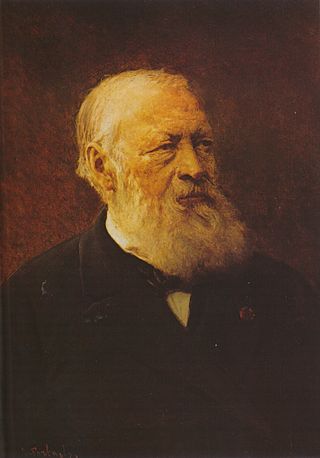
Henri(Hendrik) Conscience was a Belgian author. He is considered the pioneer of Dutch-language literature in Flanders,writing at a time when Belgium was dominated by the French language among the upper classes,in literature and government. Conscience fought as a Belgian revolutionary in 1830 and was a notable writer in the Romanticist style popular in the early 19th century. He is best known for his romantic nationalist novel,The Lion of Flanders (1838),inspired by the victory of a Flemish peasant militia over French knights at the 1302 Battle of the Golden Spurs during the Franco-Flemish War.
Dutch language literature comprises all writings of literary merit written through the ages in the Dutch language,a language which currently has around 23 million native speakers. Dutch-language literature is the product of the Netherlands,Belgium,Suriname,the Netherlands Antilles and of formerly Dutch-speaking regions,such as French Flanders,South Africa,and Indonesia. The Dutch East Indies,as Indonesia was called under Dutch colonization,spawned a separate subsection in Dutch-language literature. Conversely,Dutch-language literature sometimes was and is produced by people originally from abroad who came to live in Dutch-speaking regions,such as Anne Frank and Kader Abdolah. In its earliest stages,Dutch-language literature is defined as those pieces of literary merit written in one of the Dutch dialects of the Low Countries. Before the 17th century,there was no unified standard language;the dialects that are considered Dutch evolved from Old Frankish. A separate Afrikaans literature started to emerge during the 19th century,and it shares the same literary roots as contemporary Dutch,as Afrikaans evolved from 17th-century Dutch. The term Dutch literature may either indicate in a narrow sense literature from the Netherlands,or alternatively Dutch-language literature.

Hugo Maurice Julien Claus was a leading Belgian author who published under his own name as well as various pseudonyms. Claus' literary contributions spanned the genres of drama,novels,and poetry;he also left a legacy as a painter and film director. He wrote primarily in Dutch,although he also wrote some poetry in English. He won the 2000 International Nonino Prize in Italy.

Justus van Effen was a Dutch author,who wrote chiefly in French but also made crucial contributions to Dutch literature. A journalist,he imitated The Spectator with the publication of the Dutch-language Hollandsche Spectator. He gained international fame as a writer of French periodicals and a translator from English into French,and he is also recognized as one of the most important Dutch language writers of the 18th century and an influential figure of the Dutch Enlightenment.
Flemish literature is literature from Flanders,historically a region comprising parts of present-day Belgium,France and the Netherlands. Until the early 19th century,this literature was regarded as an integral part of Dutch literature. After Belgium became independent from the Netherlands in 1830,the term Flemish literature acquired a narrower meaning and refers to the Dutch-language literature produced in Belgium. It remains a part of Dutch-language literature.

Herman de Coninck was a Belgian poet,essayist,journalist and publisher.
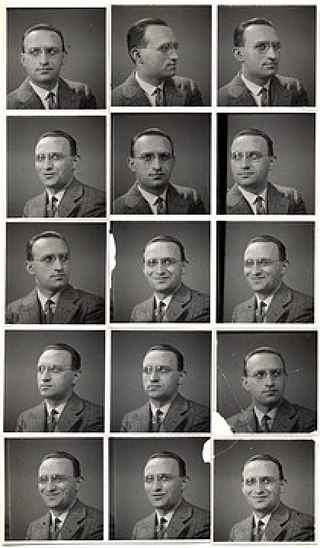
Marnix Gijsen was a Belgian writer. His real name was Joannes Alphonsius Albertus Goris;his pseudonym relates to Marnix van Sint Aldegonde and the surname of his mother (Gijsen).

Herman Louis Cesar Teirlinck was a Belgian writer. He was the fifth child and only son of Isidoor Teirlinck and Oda van Nieuwenhove,who were both teachers in Brussels. As a child,he had frail health and spent much of his time at the countryside in Zegelsem,with his paternal grandparents. He was nominated for the Nobel Prize in Literature six times.
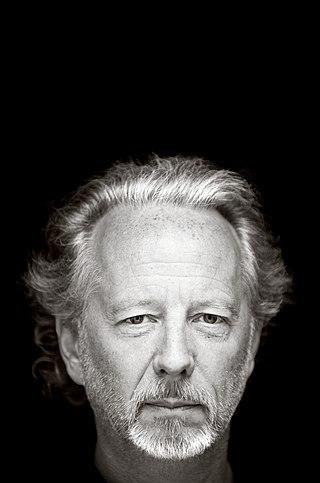
Stefan Hertmans is a Flemish Belgian writer. He was head of a study centre at University College Ghent and affiliated researcher of the Ghent University. He won the Ferdinand Bordewijk Prijs in 2002 for the novel Als op de eerste dag.
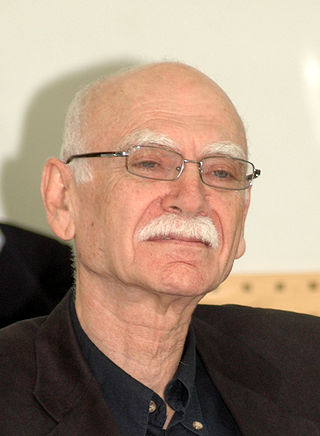
Itamar Even-Zohar is an Israeli culture researcher and professor at Tel Aviv University. Even-Zohar is a pioneer of polysystem theory and the theory of cultural repertoires.

Michiel de Swaen was a surgeon and a rhetorician from the Southern Netherlands.
AndréAlphons Lefevere was a translation theorist. He had studied at the University of Ghent (1964–1968) and then obtained his PhD at the University of Essex in 1972. When he died of acute leukemia,he was Professor of Germanic Studies at the University of Texas at Austin.

The Lion of Flanders,or the Battle of the Golden Spurs is a major novel first published in 1838 by the Belgian writer Hendrik Conscience (1812–1883) and is an early example of historical fiction. The book focuses on the medieval Franco-Flemish War and the Battle of the Golden Spurs of 1302 in particular. It is written in Conscience's typical stylistic romanticism and has been described as the "Flemish national epic".
Yann Lovelock BEM is an English writer and translator who later became a Buddhist interfaith worker.
Translation criticism is the systematic study,evaluation,and interpretation of different aspects of translated works. It is an interdisciplinary academic field closely related to literary criticism and translation theory. It includes marking of student translations,and reviews of published translations.
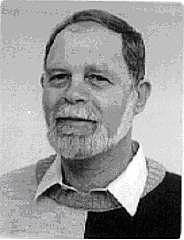
Gideon Toury was an Israeli translation scholar and professor of Poetics,Comparative Literature and Translation Studies at Tel Aviv University,where he held the M. Bernstein Chair of Translation Theory. Gideon Toury was a pioneer of Descriptive Translation Studies.
James Stratton Holmes was an American-Dutch poet,translator,and translation scholar. He sometimes published his work using his real name James S. Holmes,and other times the pen names Jim Holmes and Jacob Lowland. In 1956 he was the first non-Dutch translator to receive the prestigious Martinus Nijhoff Award,the most important recognition given to translators of creative texts from or into Dutch.
Herman Frans Anna baron Van der Wee is a Belgian economic historian. He was a full professor of social and economic history at the KU Leuven from 1969 to 1993. The academic output of Van der Wee spans economic history,the history of banking,financial history. He has performed research on the period from the Middle Ages to the present time. Geographically he has performed broad research as well,looking into Antwerp,Belgium,the Low Countries,Europe and the world.
References
- ↑ Douglas Robinson, What is translation?: centrifugal theories, critical interventions. Kent OH: Kent State University Press, 1997 (ch. 5).
- ↑ University College of London Staff
- ↑ Interview with Theo Hermans
- ↑ Hermans, Theo (2009). A Literary History of the Low Countries. Rochester, New York: Camden House. ISBN 9781571132932.
- ↑ McCracken-Flesher, Caroline (2007). Culture, Nation, and the New Scottish Parliament. Cranbury, NJ: Associated University Press. p. 89. ISBN 083875547X.
- ↑ Tyulenev, Sergey (2012). Applying Luhmann to Translation Studies: Translation in Society. Oxon: Routledge. p. 47. ISBN 9780415892308.
- ↑ Deneire, Tom (2014). Dynamics of Neo-Latin and the Vernacular: Language and Poetics, Translation and Transfer. Leiden: BRILL. p. 306. ISBN 9789004280182.
- ↑ Gambier, Yves; Doorslaer, Luc van (2010). Handbook of Translation Studies . Amsterdam: John Benjamins Publishing. pp. 86. ISBN 9789027203328.
- ↑ Cook, Harold John; Dupré, Sven (2012). Translating Knowledge in the Early Modern Low Countries, Volume 3. Zurich: LIT Verlag Münster. p. 11. ISBN 9783643902467.
- ↑ Ning, Wang; Yifeng, Sun (2008). Translation, Globalisation and Localisation: A Chinese Perspective. Clevedon: Multilingual Matters Ltd. p. 113. ISBN 9781847695352.